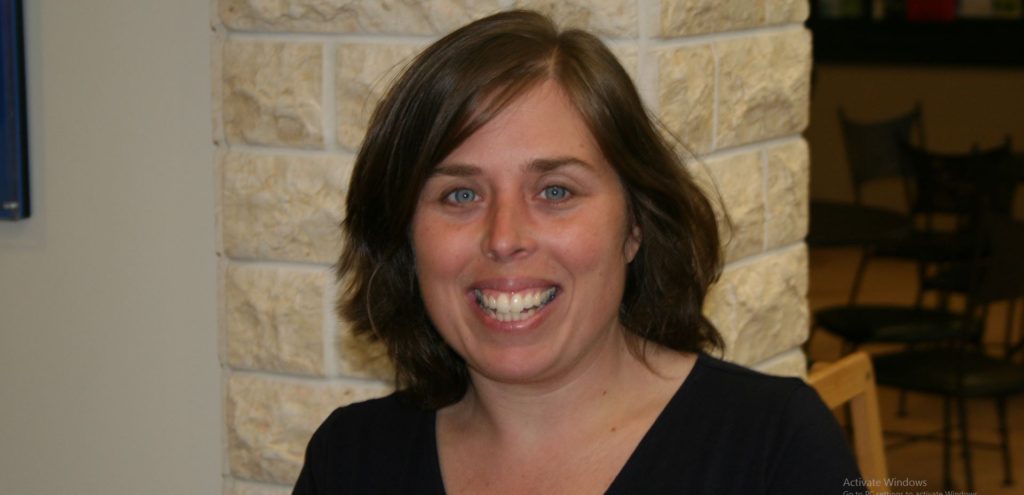On Friday, Jan. 20 our country will once again come together to engage in a long standing practice within our union: the inauguration of the president of the United States.
Every four years our nation elects or re-elects a leader to be sworn in, a leader who promises to uphold the will of the citizens and to protect, defend and advance the needs of our country. With great pomp and circumstance this ritual will take place this year. There will be inaugural balls, receptions, parades and meals. There will also be significant trepidation from those in our country who cast their vote for a different candidate and are unsure of what this presidency holds for our collective future.
On Shabbat, Jan. 21, that same weekend, in synagogues around the world, Jews will once again come together to begin a new Book of the Torah. We will conclude the Book of Genesis and turn our attention to the words in Exodus, or Shemot in Hebrew. Every winter we remind ourselves of the stories it contains. We read of the oppression of the Jews by Pharaoh, the Exodus from Egypt, the Ten Commandments and additional mitzvot that are enumerated. We also trace the steps as the Israelites began their wandering through the desert.
I can’t help but think about the connection between these two moments in time. For years, after the reunion of Joseph and his brothers back in the Book of Genesis, the Israelites had been able to dwell in relative peace and security. “Seventy of Jacob’s issue went into Egypt and the Torah teaches that they and the next generation were fertile and prolific; they multiplied and increased very greatly, so that the land was filled with them.” (Exodus 1:7)
But then, “A New King arose over Egypt who did not know Joseph…” (Exodus 1:8) How scary it must have been for the Israelites to not know what lay before them. What will this new leader be like? Will he retain their freedom and prosperity or cause them distress and hardship?
The Torah teaches of fears from the Israelites who lived more than 3,000 years ago, and yet, it could also be accurately describing the mood today. Ain kol chadash tachat hashemesh, as Ecclesiastes teaches, there is nothing new under the sun. (1:9)
This isn’t new. Each election season we face new challenges and opportunities. And still, no one has the answers. Not the overwhelming abundance of partisan articles, editorials and op-eds yelling about the kind of government we will have. Nor the Facebook rants about the news of the day. Not even the supporters who rejoice in the election of their candidate and yearn for something different. No one has the answers because they have not yet been written.
They are ours to write together, just as the Israelites had to do the same. Will it be easy? Also not yet known. We can imagine, however, that after the painful and disgusting rhetoric of this election season it will most likely not be smooth.
Yet, somehow, we must work towards peace in the future. There is a story taught in the Talmud of a rabbi standing in a marketplace when Elijah appeared to him. The Rabbi asked, is there anyone here that will have a share in the life in the world to come? Elijah answered that in that moment, there was not. Then, two men appeared and Elijah changed his answer and said, “These two will have a share in the world to come.” Surprised, the rabbi asked them, what had they done to earn such praise? They answered, “We are merrymakers; when we see people troubled in mind we cheer them, and when we see two men quarreling we make peace between them.” (Talmud Taanit 22a)
Who has a place in the world to come? Those that work towards harmony and happiness.
We hope that our relationship with the upcoming leadership is a different one that the Israelites encountered with “the Pharaoh who knew not Joseph.” We also need to recognize that our journey can be different because we have the benefit of all the journeys that came before us. We need to dialogue. We need to have faith. We need to work towards mutual understanding and we need to work towards peace without compromising our core values and ideals.
Alfred North Whitehead, an English mathematician and philosopher wrote, “A clash of doctrines is not a disaster – it is an opportunity. “
For this January of beginnings, let us make our opportunities a positive part of our journey.
Rabbi Shari Shamah is the Jewish family specialist with the Harry & Rose Samson Family Jewish Community Center, 6255 N. Santa Monica Blvd. in Whitefish Bay.



